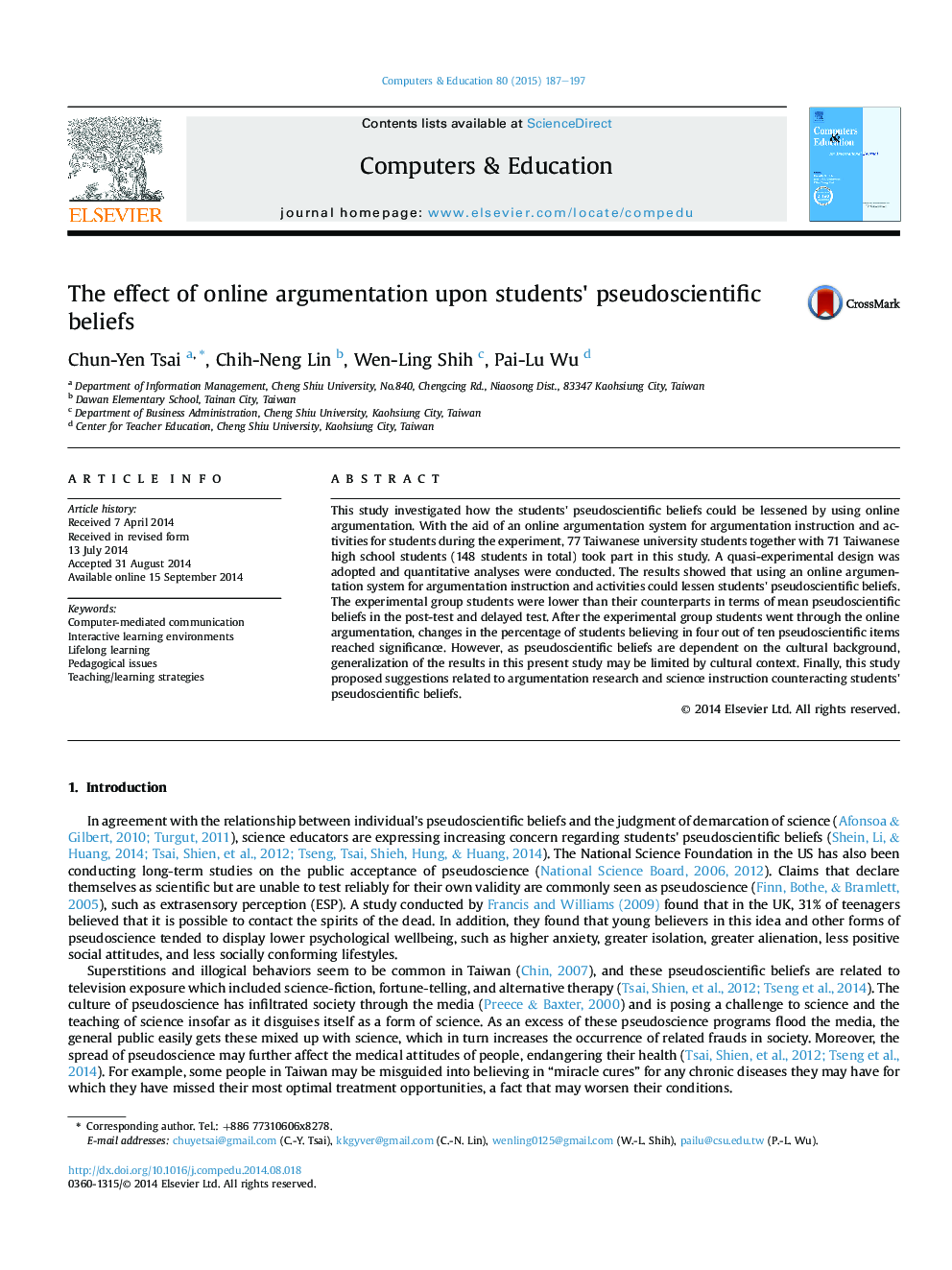| Article ID | Journal | Published Year | Pages | File Type |
|---|---|---|---|---|
| 6835114 | Computers & Education | 2015 | 11 Pages |
Abstract
This study investigated how the students' pseudoscientific beliefs could be lessened by using online argumentation. With the aid of an online argumentation system for argumentation instruction and activities for students during the experiment, 77 Taiwanese university students together with 71 Taiwanese high school students (148 students in total) took part in this study. A quasi-experimental design was adopted and quantitative analyses were conducted. The results showed that using an online argumentation system for argumentation instruction and activities could lessen students' pseudoscientific beliefs. The experimental group students were lower than their counterparts in terms of mean pseudoscientific beliefs in the post-test and delayed test. After the experimental group students went through the online argumentation, changes in the percentage of students believing in four out of ten pseudoscientific items reached significance. However, as pseudoscientific beliefs are dependent on the cultural background, generalization of the results in this present study may be limited by cultural context. Finally, this study proposed suggestions related to argumentation research and science instruction counteracting students' pseudoscientific beliefs.
Keywords
Related Topics
Social Sciences and Humanities
Social Sciences
Education
Authors
Chun-Yen Tsai, Chih-Neng Lin, Wen-Ling Shih, Pai-Lu Wu,
